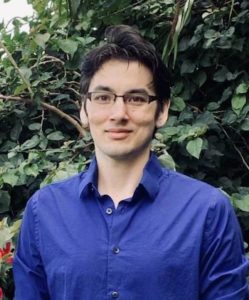Books on herbal medicine go way back, back into the misty time of myth and story. We have Shen Nong with his peculiar ability to taste and feel the influences of plants. We have the foundational writings of astute practitioners like Zhang Zhong Jing, Li Shi Zhen and Ye Tian Shi. And then there are the thousands of years of regular doctors like you and I, who have recorded their clinical experience so future generations of practitioners might glean something of their experience and perspective.
As with all East Asian medicine there is more than one perspective we can use to understand the nature of humans and world, and how we might be able to assist with our patient’s health. The Tang Ye Jing, the classic of decoctions, is an ancient text that looks at herbal medicine from the perspective of the five phases and invites us to consider the use of flavor in a way you might not have considered.
There is some debate on the authenticity of this text. Regardless of origin, the Tang Ye Jing provides us with another perspective that can help us to think in another way about the actions of herbs and the workings of human physiology.
In This Conversation We Discuss:
- The Tang Ye Jing is a lost classic that shows up in the fragments of other works
- Looking at herbs from a five-phase perspective that is different from what we learned in school
- Discussion of how Shao Yao is an “earth of metal” herb
- Su Wen Chapter 22 for flavors and associations
- Understanding the correspondence between herbs from the Tang Ye Jing perspective gives another way of understanding how formulas and individual medicinals work
- The Tang Ye Jing and Shang Han Lun help us to marry together the five phases with six confirmation perspective
- Using the filters of proper physiology and pathology
- Open, close, pivot helps us to understand the proper functioning of the six confirmations
Dare to take the classics seriously!
See them as the clinical manuals that they are, not just abstract theory or museum pieces.
 Joshua Park, L.Ac
Joshua Park, L.Ac
My journey into Chinese Medicine began with a fascination with the Yi Jing and Daoist philosophy. When I discovered that these ancient principles could be practically applied to alleviate human suffering, I realized I had found both not only a career, but my life’s calling.
I am continually of awe of the sophisticated account of physiological and cosmological relationships found in the Han Dynasty classics.
My passion is delving within these medical source texts to find specific prescriptions and methodologies for treating contemporary diseases. This classically-informed approach is how I enjoy practicing both acupuncture and herbal medicine.
Links and Resources
Foundations of Theory for Ancient Chinese Medicine by Dr. Liu Guohui – This is an excellent foundational text for Jing Fang/Classical Herbalism. Among a plethora of both scholarly and clinical insights, there is a chapter on the Tang Ye Jing and other Daoist influences on Zhang Zhongjing.
Chinese Medicine Central – A fantastic website run by Eric Grey, L.Ac, which hosts both my ongoing Tang Ye Jing series and a number of great resources for practitioners. There’s a handy visual aid for the Tang Ye Jing material available here.
Join the discussion!
Leave a comment on Qiological’s Facebook page.
